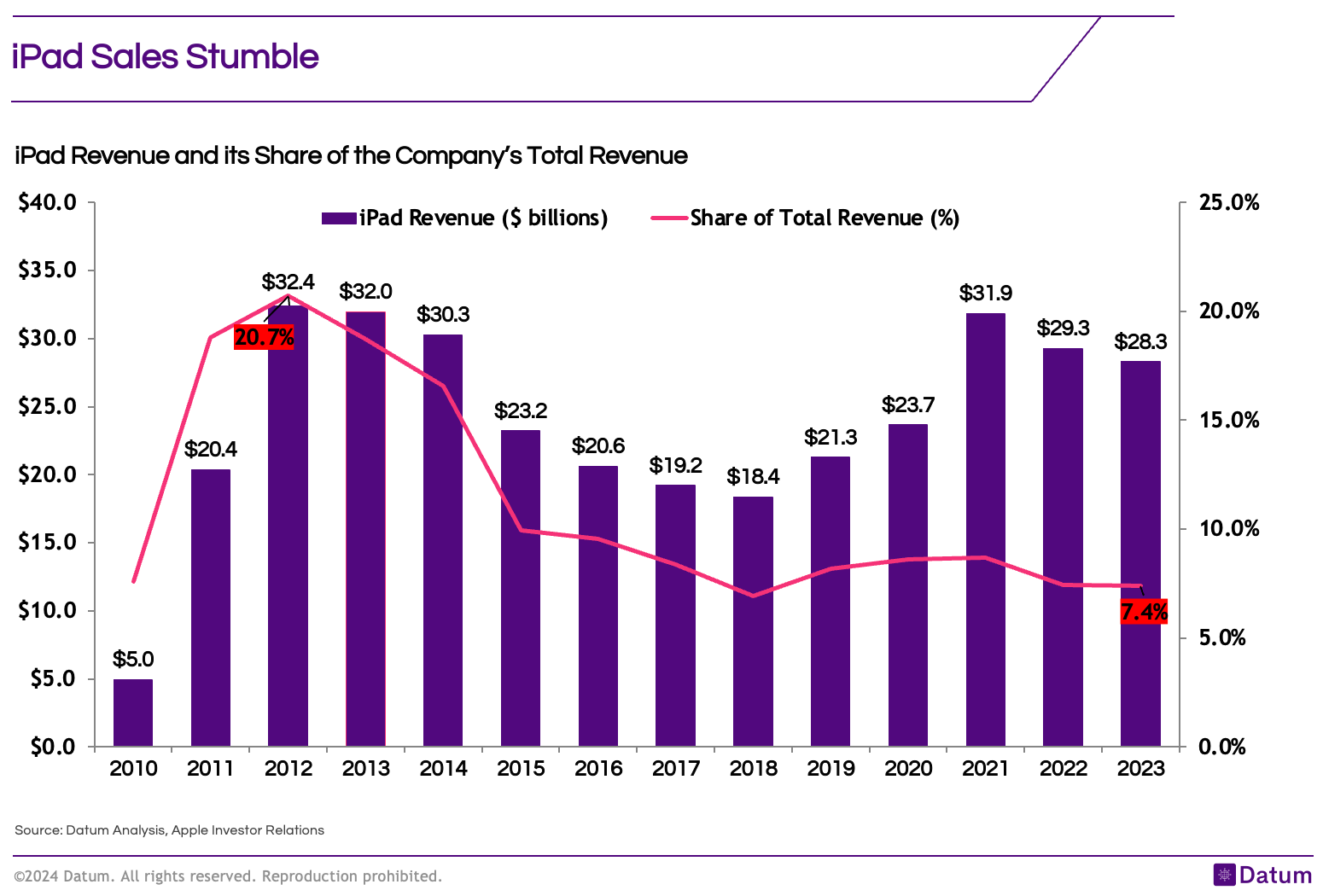Table of Contents
After experiencing a temporary boost in 2020 and 2021 due to the COVID-19 pandemic, iPad sales have been on a decline for the past two years.
In the first six months of Apple's fiscal year 2024, iPad sales have dropped by over 20% compared to the previous year.
This ongoing decrease in sales is a cause for concern, prompting Apple to focus on new models in an effort to reverse the trend and revitalize the stagnant iPad business.
Apple's iPad sales have been on a downward trend, with several factors contributing to this decline. Some of the key reasons include:
- Market saturation: As the tablet market matures, there are fewer new customers to drive growth, leading to a decline in overall sales.
- Increased competition: With more players entering the market, customers have a wider range of options to choose from, impacting Apple's market share.
- Longer upgrade cycles: iPads have a longer lifespan compared to smartphones, leading to users holding onto their devices for longer periods and slowing down the rate of new purchases.
Shift in consumer preferences: As smartphones continue to increase in size and functionality, some consumers may opt for larger phones over tablets, further impacting iPad sales.

The iPad initially made a strong debut, accounting for nearly 20% of Apple's revenue in its second year. However, after peaking in 2013, sales began to decline due to market saturation and the increasing popularity of large-screen smartphones.
This downward trend has continued, with the iPad contributing to only 6% of Apple's revenue in the first six months of fiscal year 2024, highlighting the need for Apple to revamp its tablet offerings.
To counter this Apple launched a new iPad lineup.





